Eike-Manuel Bansbach
Spiking Neural Network Decision Feedback Equalization
Nov 11, 2022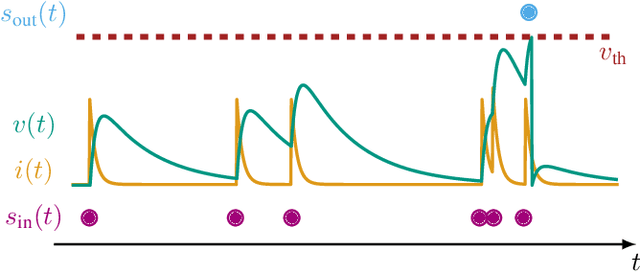
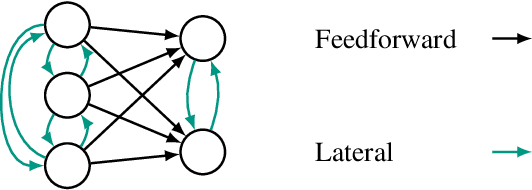
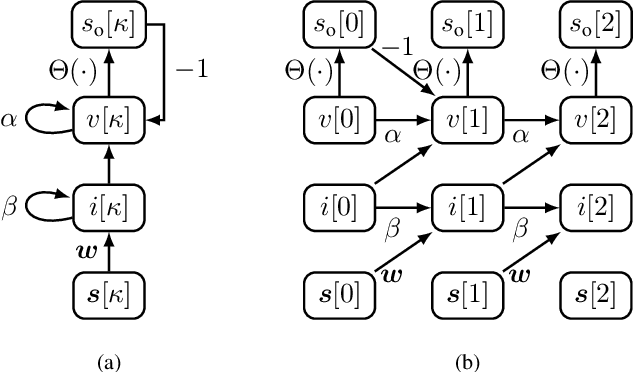
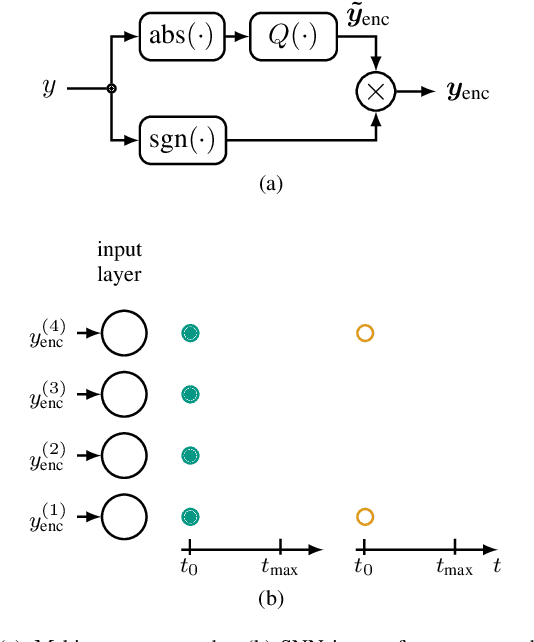
Abstract:In the past years, artificial neural networks (ANNs) have become the de-facto standard to solve tasks in communications engineering that are difficult to solve with traditional methods. In parallel, the artificial intelligence community drives its research to biology-inspired, brain-like spiking neural networks (SNNs), which promise extremely energy-efficient computing. In this paper, we investigate the use of SNNs in the context of channel equalization for ultra-low complexity receivers. We propose an SNN-based equalizer with a feedback structure akin to the decision feedback equalizer (DFE). For conversion of real-world data into spike signals we introduce a novel ternary encoding and compare it with traditional log-scale encoding. We show that our approach clearly outperforms conventional linear equalizers for three different exemplary channels. We highlight that mainly the conversion of the channel output to spikes introduces a small performance penalty. The proposed SNN with a decision feedback structure enables the path to competitive energy-efficient transceivers.
Deep Reinforcement Learning for Uplink Multi-Carrier Non-Orthogonal Multiple Access Resource Allocation Using Buffer State Information
Aug 31, 2022



Abstract:For orthogonal multiple access (OMA) systems, the number of served user equipments (UEs) is limited to the number of available orthogonal resources. On the other hand, non-orthogonal multiple access (NOMA) schemes allow multiple UEs to use the same orthogonal resource. This extra degree of freedom introduces new challenges for resource allocation. Buffer state information (BSI), like the size and age of packets waiting for transmission, can be used to improve scheduling in OMA systems. In this paper, we investigate the impact of BSI on the performance of a centralized scheduler in an uplink multi-carrier NOMA scenario with UEs having various data rate and latency requirements. To handle the large combinatorial space of allocating UEs to the resources, we propose a novel scheduler based on actor-critic reinforcement learning incorporating BSI. Training and evaluation are carried out using Nokia's "wireless suite". We propose various novel techniques to both stabilize and speed up training. The proposed scheduler outperforms benchmark schedulers.
Deep Reinforcement Learning for Wireless Resource Allocation Using Buffer State Information
Aug 27, 2021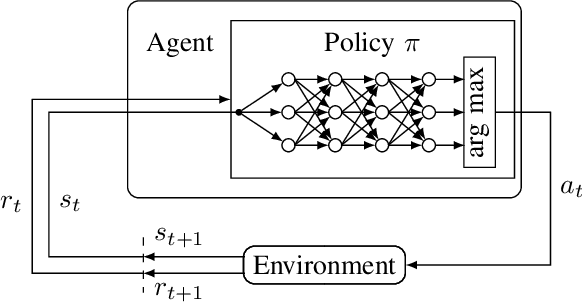

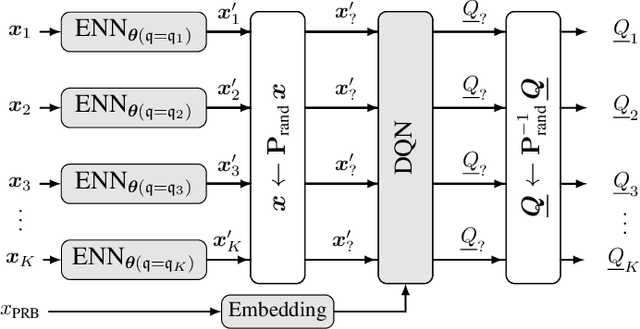
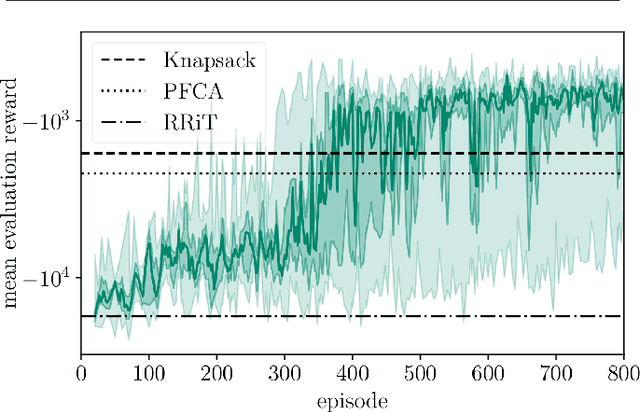
Abstract:As the number of user equipments (UEs) with various data rate and latency requirements increases in wireless networks, the resource allocation problem for orthogonal frequency-division multiple access (OFDMA) becomes challenging. In particular, varying requirements lead to a non-convex optimization problem when maximizing the systems data rate while preserving fairness between UEs. In this paper, we solve the non-convex optimization problem using deep reinforcement learning (DRL). We outline, train and evaluate a DRL agent, which performs the task of media access control scheduling for a downlink OFDMA scenario. To kickstart training of our agent, we introduce mimicking learning. For improvement of scheduling performance, full buffer state information at the base station (e.g. packet age, packet size) is taken into account. Techniques like input feature compression, packet shuffling and age capping further improve the performance of the agent. We train and evaluate our agents using Nokia's wireless suite and evaluate against different benchmark agents. We show that our agents clearly outperform the benchmark agents.
 Add to Chrome
Add to Chrome Add to Firefox
Add to Firefox Add to Edge
Add to Edge